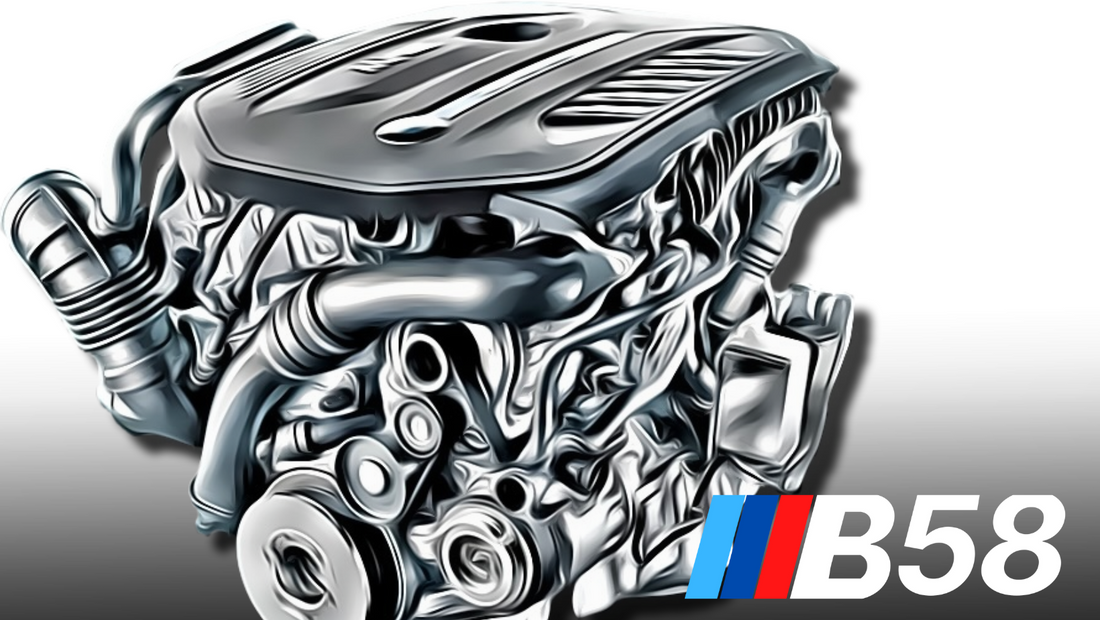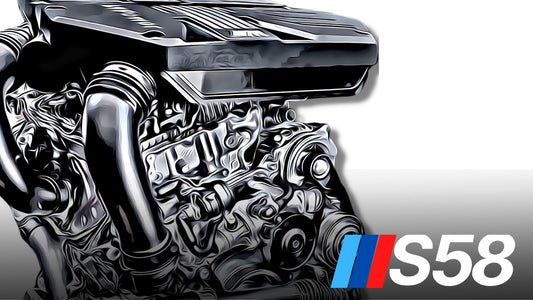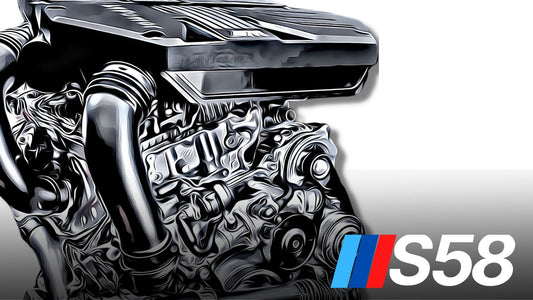BMW B58 Engine: Bridging Performance and Innovation
The BMW B58 engine, introduced in 2015, has rapidly established itself as a paragon of modern engine design. Replacing the N55, it has been lauded for its performance, efficiency, and technological advancements. Let's explore the B58 in depth, comparing it with its BMW counterparts, the N54, N55, and S55, and its use in vehicles like the Toyota Supra.
Technical Sophistication and Performance
The B58 is a turbocharged straight-six engine that belongs to BMW's new modular engine family, with a displacement of 500 cc per cylinder. It was named among Ward's World's 10 Best Engines four times between 2016 and 2020, signifying its industry acclaim.
Compared to the N55, the B58 boasts a 20% increase in boost pressure, a closed-deck engine block, a higher compression ratio of 11.0:1, and a slight increase in displacement from 2,979 to 2,998. These enhancements contribute to the B58's robustness and performance efficiency. The twin-scroll turbocharger design ensures efficient power delivery with minimal lag. At the same time, the integrated water-to-air intercooler in the intake plenum reduces the air volume between the turbocharger and cylinders, optimizing power.
Maintaining the 7,000 rpm redline of the N55, the B58 also features direct fuel injection, variable valve timing (Double Vanos), and variable valve lift (Valvetronic). Notably, it includes an engine-mounted heat encapsulation system to reduce wear and emissions during start-up. The rotating assembly comprises a forged steel crankshaft and connecting rods, enhancing durability and longevity. The crankcase's new design, shared with the B57 diesel version, has a complex rib array and an additional reinforcement frame, demonstrating BMW's commitment to robust and versatile engineering.
Revisions and Evolution
In 2018, the B58 underwent significant revisions (dubbed "B58TU"), including an updated fuel system with 75% increased pressure, a new particulate filter in the catalytic converter, a one-part timing chain, and separate cooling circuits for the cylinder head and crankcase. Weight savings were achieved by optimizing the crankcase wall thickness and crankshaft and integrating the exhaust manifold into the cylinder head.
Comparison with Predecessors
The B58 represents a leap forward from the twin-turbo N54 and the single-turbo N55 regarding efficiency, power delivery, and environmental consciousness. While the N54 is celebrated for its raw tuning potential and the S55 for its motorsport-oriented performance, the B58 strikes a balance, offering robust power in a more refined and efficient package.
B58 And The Toyota Supra
One of the most notable applications of the B58 is in the Toyota Supra, where it has been praised for providing a high-performance driving experience in a legendary sports car. This cross-brand usage underscores the B58's versatility and appeal beyond BMW models.
Conclusion
The BMW B58 engine emerges as a masterpiece of modern engineering, skillfully balancing power, efficiency, and innovation. Its versatility, evidenced by its success in both BMW and Toyota models and its technological superiority over its predecessors, positions the B58 as a significant milestone in the evolution of performance engines.
What are the common issues with the BMW B58 engine?
The BMW B58 engine is a powerful and popular engine used in various BMW models. While it offers impressive performance and reliability, owners may encounter a few common problems. Understanding these issues can help BMW owners proactively address them and maintain the longevity of their engines.
Carbon Buildup
Carbon buildup is one of the most common issues with the BMW B58 engine. Over time, carbon deposits can accumulate on the intake valves, leading to reduced engine performance and efficiency. Regular maintenance, such as periodic valve cleaning, can help prevent this problem.
High-Pressure Fuel Pump (HPFP) Failure
Another problem that some BMW B58 engine owners may experience is high-pressure fuel pump (HPFP) failure. This can result in engine misfires, rough idling, and a loss of power. BMW has issued recalls and extended warranties for specific models affected by this issue, so it's essential to stay informed and take action if necessary.
Oil Leaks
Oil leaks are another common problem with the BMW B58 engine. These leaks can occur from various components, such as the valve cover gasket or oil filter housing gasket. Regular inspections and maintenance can help detect and address oil leaks before they cause more significant issues.
Water Pump Failure
Water pump failure is a known problem in the BMW B58 engine. A faulty water pump can lead to overheating, which can cause severe engine damage if not addressed promptly. Regular coolant system inspections and timely water pump replacements can help prevent this issue.
Timing Chain Tensioner Failure
Lastly, some BMW B58 engine owners have reported timing chain tensioner failure. If not addressed, this can result in engine noise, rough running, and even engine failure. Regular maintenance and inspections can help detect any issues with the timing chain tensioner and prevent further damage.
While these problems are not exhaustive, they are some of the most common issues reported by BMW B58 engine owners. BMW owners need to stay informed, perform regular maintenance, and address problems promptly to ensure the longevity and performance of their engines.


















